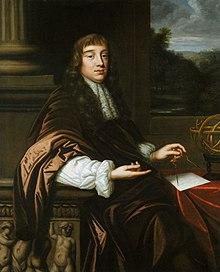Not only was Robert Hooke a true Renaissance man of the 17th century but he also means scientific discovery and innovation to his name. His impact on various fields of science such as physics, biology, astronomy, and architecture is felt till present times. The curiosity that could never be satisfied together with close attention to detail pushed him ahead during a period characterized by much intellectual activity.
Birth and early life
Robert Hooke was born on 18th July 1635 in Freshwater; an English town located on the Isle of Wight This parson`s son received basic education though he had shown signs of brilliance ever since his childhood days. Due to poor health conditions, he never joined any regular school system but was taught by his dad at their home until old enough to read books alone without help from anybody else. However; this fact did not hinder him from becoming one of the most brilliant minds.
Infancy
His physical limitations notwithstanding, Hooke displayed intelligence in every part of his life. He had a great fascination for different disciplines such as mathematics, mechanics, and astronomy even though he could barely carry out any calculations when it came to these subjects at that time. Because of this, Hooke`s father saw the potential that rested on his son and went on to promote his intellectual growth. The future famous scientist spent most of his early years trying out mechanical devices while also conducting experiments thus representing a foundation upon which further scientific study would be based.
Academic life and early career
In 1653, Robert Hooke joined Christ Church College where he was enrolled as a student. He got involved with some notable scientists like John Wilkins and Robert Boyle, which deepened his interest in science. That made him be taken up quickly as an asset by the Royal Society newly founded body aimed at promoting scientific knowledge and experimentation.
Scientific contributions
Hooke made many large-scale contributions to science across a wide range of subjects. Among his achievements included:
Microscopy
Hooke’s most famous work was in microscopy. By utilizing a compound microscope of his design, he was able to observe and freely document many different types of specimens like bugs, plants, and fossils. The book he wrote during this time, “Micrographia” (1665) describes the wonders of the microscopic world introducing the term ‘cell’ as representing an organism’s smallest structural unit.
Physics
Hooke had significant input into physics particularly concerning mechanics as well as elasticity. Hooke came up with an all-important principle known as Hooke’s Law that states the force of a spring is directly proportional to its stretching or compressing. In engineering and physics, it has various implications.
Astronomy
Hooke loved spending time watching stars. His notable contributions include studies on planetary motion and celestial mechanics alongside observing down Jupiter’s Great Red Spot together with Saturn’s Rings.
Architecture
Hooke was a man of talent in architecture. He played a key role in rebuilding London after the infamous fire of 1666 where he got to design some remarkable buildings such as the Monument to the Great Fire of London.
Later Life and Legacy
Several conflicts with other scientists especially Isaac Newton made his later days less favorable while the same could not be said concerning his scientific heritage; it was solid. Up-to-date, continuous research by scientists all over the world aims at replicating his meticulous observations, experiments that are innovative, and theories that are deep.
Robert Hooke is proof of how much power human curiosity and the acquisition of wisdom can possess He made significant contributions to our knowledge about nature through his findings in different branches of science such as physics biology astronomy and architecture among others thereby continuing to shape future scientific advances.

